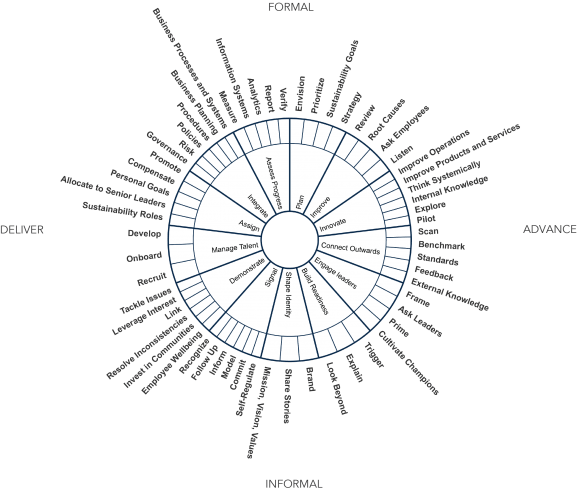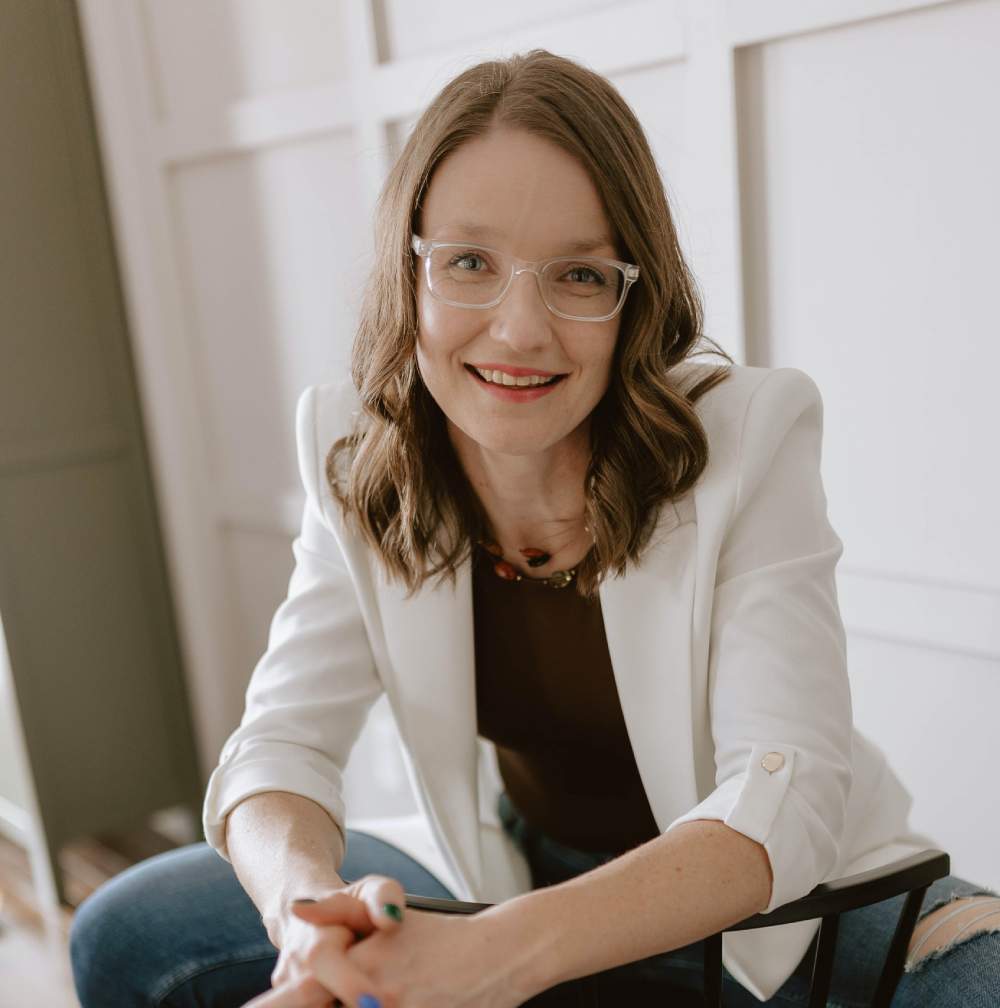Advice on doing research that impacts practice from business school sustainability centre leaders around the world.
The Sustainability Centres Community (SCC) is an international network of business school sustainability centres, managed by the Network for Business Sustainability. At the third SCC workshop, cohosted by INSEAD and held in Fontainebleau, France, in November 2016, centre leaders shared advice for addressing their common challenges.
Here are their insights on how how centres can produce relevant, high quality research that informs managers’ decisions.
Companion documents offer insights on managing a sustainability centre and supporting effective sustainability teaching, as well as leaders’ reflections on what they wish they had known before beginning a centre. Join the Sustainability Centres Community for more insights and action.
Engaged Scholarship as a Paradigm for Research Collaboration with Managers
Engaged scholarship is participative research which obtains the views of key stakeholders to understand a complex problem.[1] This stakeholder engagement facilitates identification of problems relevant to practice, and provides vital data for answering them.
Arguing for such an approach, Tima Bansal (NBS) said: “As researchers, we have to be more open to action research. If we don’t change our methods, we’ll be left behind.”
Panelists presented three case studies of engaged scholarship, all related to innovation:
-
MIT partnered with Lockheed Martin, a technology company in the defense industry, on how to commercialize their products in a way that benefits the public. Project outputs sought to reach multiple audiences. For academia, the researchers wrote a concept paper on sustainability-oriented innovation (SOI) and guided two master’s theses. For a broader audience, the project produced a series of blog posts on SOI. For managers, the project provided a tool for unlocking capital for SOI ventures. MIT is now applying findings with Lockheed Martin, and student teams are building commercialization strategies to maximize the social benefit of specific technologies. (Contact: Jason Jay)
-
The Network for Business Sustainability (NBS) has launched the Innovation Project, in which academics work with firms to connect innovation to sustainability. Researchers map a firm’s current approach to innovation, identify areas for change, and study the outcomes. For example, as a result of its project involvement, 3M is incorporating SOI metrics earlier, at the product pitch stage. The project also incorporates peer-to-peer learning. (Contact: Tima Bansal)
-
Innovation 4 Sustainability, hosted by the Academy for Business in Society, prepares doctoral students for direct engagement with organizations outside academia. Eight European universities are working on linked projects related to SOI. They have found that students need traditional skills (e.g. research methods) but also entrepreneurial skills related to getting grants, engaging with the public, working with industry, and coordinating across research teams. (Contact: Sally Randles)
Tips for Research Collaborations between Academics and Managers
When academics and managers work together on research, they often bring different perspectives and expectations. These differences can enrich the research process but also pose challenges.
Workshop participants identified ways that the organization facilitates academic-manager collaboration. These include:
-
having someone act as a “boundary spanner,” facilitating the communication between managers and researchers
-
having a structured research process with regular touch points. At NBS, a “guidance committee” of managers provides input into the research process through monthly calls with researchers.
-
working quickly (in academic terms). Businesses needs fast results. Rodney Irwin of the World Business Council for Sustainable Development commented: “We can’t wait three years for you to publish.”
-
leveraging “boundary objects.” Boundary objects represent findings in a way that is meaningful and useful for both academics and managers. They allow researchers and managers to communicate on similar ground. Below is a boundary object developed by SCC member Stephanie Bertels (Simon Fraser University) for the Embedding Project. The figure shows ways of embedding sustainability into a company.

Work collaboratively with industry, but remain independent.
Working closely with industry, and accepting funds, can pose challenges: for example, potential bias, or industry expectations of influencing what data are published. Centres develop principles to guide the process. One workshop participant commented that a corporate sponsor “does use us for reputational gains, but is also deeply engaged in research.”
The recent SCC webinar on Finding Funding identifies ways to manage influence by funders. Additionally, Sally Randles (Manchester Metropolitan University) suggested the book Imagining the University for its insights into relationships between academia and stakeholders.
Sharing Research Findings with Practitioners
Co-creating research with managers, through engaged scholarship, should result in outputs that are valuable for practitioners. Once research is complete, centres can share it with managers and other stakeholders by presenting information effectively and leveraging the right dissemination channels, and even by convening stakeholders.
Hone the message and language.
Gemma Ware (The Conversation) offered a set of communication best practices. The Conversation is an international platform which distills academic findings from research for the broad public. They seek writing that is:
-
actionable, focusing on solutions, not problems. Writers should emphasize findings rather than methods and context.
-
clear. Ware recommends that writers begin with the conclusion, avoid jargon and rhetorical questions, use bullet points, and have a good hook – likely more specific than sustainability.
-
timely. At The Conversation, articles are tied to the news agenda or breakthrough ideas in business. If your focus is on a particular policy, offer a critique with real life examples of the policy’s impact or suggest improvements. If you are building from a published journal article, contact journalists at least a week before your article is published.
Engage with dissemination partners.
A variety of outlets exist; university media relations offices may be able to help you navigate them. The Conversation is an option: all content is under the Creative Commons license, allowing journalists around the world to republish it.
Use the convening power of universities.
Bring people together in conversation is often more productive than simply sharing a written text. Universities can be ideally situated to convene different parties around controversial issues. Workshop participants said that such gatherings are more effective when they have skilled facilitators (e.g. boundary spanners) and occur regularly. Conversations should be oriented around a shared object of discussion (boundary object): for example, a 2 x 2 matrix. When this focus is provisional, simple, and incomplete, it encourages problem-solving and discourages defensiveness.
More Information
For additional resources for sustainability centres, see the Sustainability Centres Community webpage.
Join the Sustainability Centres Community to become part of the learning and action network.
Our Partners
The Sustainability Centres Workshop was made possible by support from the Network for Business Sustainability, the INSEAD Social Innovation Centre, Sorbonne Universités, the Harvard Business School Business and Environment Initiative, the Erb Institute at the University of Michigan, the Michael Lee-Chin Family Institute for Corporate Citizenship at Rotman School of Management, and the MIT Sloan Sustainability Initiative.
[1] Van de Ven, A. H. 2007. Engaged Scholarship: A Guide for Organizational and Social Research. Oxford: Oxford University Press.



Add a Comment
This site uses User Verification plugin to reduce spam. See how your comment data is processed.This site uses User Verification plugin to reduce spam. See how your comment data is processed.